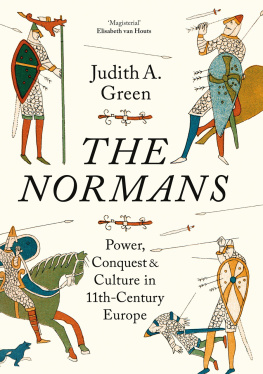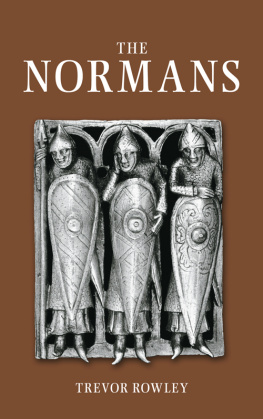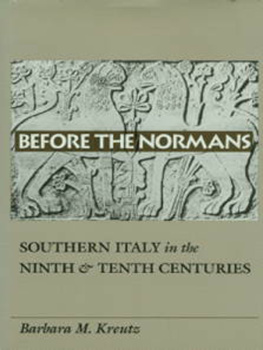Sarah Orne Jewett - The Story of the Normans
Here you can read online Sarah Orne Jewett - The Story of the Normans full text of the book (entire story) in english for free. Download pdf and epub, get meaning, cover and reviews about this ebook. year: 2011, publisher: Barnes & Noble, genre: History. Description of the work, (preface) as well as reviews are available. Best literature library LitArk.com created for fans of good reading and offers a wide selection of genres:
Romance novel
Science fiction
Adventure
Detective
Science
History
Home and family
Prose
Art
Politics
Computer
Non-fiction
Religion
Business
Children
Humor
Choose a favorite category and find really read worthwhile books. Enjoy immersion in the world of imagination, feel the emotions of the characters or learn something new for yourself, make an fascinating discovery.
- Book:The Story of the Normans
- Author:
- Publisher:Barnes & Noble
- Genre:
- Year:2011
- Rating:5 / 5
- Favourites:Add to favourites
- Your mark:
- 100
- 1
- 2
- 3
- 4
- 5
The Story of the Normans: summary, description and annotation
We offer to read an annotation, description, summary or preface (depends on what the author of the book "The Story of the Normans" wrote himself). If you haven't found the necessary information about the book — write in the comments, we will try to find it.
The Story of the Normans is Jewetts engaging history of the Normans and their conquest of England. Jewett covers the time period from the mid-ninth century to the early eleventh century with her customary eloquence. A revealing look at the people Jewett calls the foremost people of their time, this is a balanced and accurate history that captures the romance and adventure of the period.
The Story of the Normans — read online for free the complete book (whole text) full work
Below is the text of the book, divided by pages. System saving the place of the last page read, allows you to conveniently read the book "The Story of the Normans" online for free, without having to search again every time where you left off. Put a bookmark, and you can go to the page where you finished reading at any time.
Font size:
Interval:
Bookmark:
SARAH ORNE JEWETT

This 2011 edition published by Barnes & Noble, Inc.
All rights reserved. No part of this publication may be reproduced, stored in a retrieval system, or transmitted, in any form or by any means, electronic, mechanical, photocopying, recording, or otherwise, without prior written permission from the publisher.
Barnes & Noble, Inc.
122 Fifth Avenue
New York, NY 10011
ISBN: 978-1-4114-4297-9
DUKES OF THE NORMANS.


I
THE MEN OF THE DRAGON SHIPS
"Far as the breeze can bear, the billows foam, |
Survey our empire and behold our home." |
BYRON |
T HE gulf stream flows so near to the southern coast of Norway, and to the Orkneys and Western Islands, that their climate is much less severe than might be supposed. Yet no one can help wondering why they were formerly so much more populous than now, and why the people who came westward even so long ago as the great Aryan migration, did not persist in turning aside to the more fertile countries that lay farther southward. In spite of all their disadvantages, the Scandinavian peninsula, and the sterile islands of the northern seas, were inhabited by men and women whose enterprise and intelligence ranked them above their neighbors.
Now, with the modern ease of travel and transportation, these poorer countries can be supplied from other parts of the world. And though the summers of Norway are misty and dark and short, and it is difficult to raise even a little hay on the bits of meadow among the rocky mountain slopes, commerce can make up for all deficiencies. In early times there was no commerce except that carried on by the piratesif we may dignify their undertakings by such a respectable name,and it was hardly possible to make a living from the soil alone. The sand dunes of Denmark and the cliffs of Norway alike gave little encouragement to tillers of the ground, yet, in defiance of all our ideas of successful colonization, when the people of these countries left them, it was at first only to form new settlements in such places as Iceland, or the Faro or Orkney islands and stormiest Hebrides. But it does not take us long to discover that the ancient Northmen were not farmers, but hunters and fishermen. It had grown more and more difficult to find food along the rivers and broad grassy wastes of inland Europe, and pushing westward they had at last reached the place where they could live beside waters that swarmed with fish and among hills that sheltered plenty of game.
Besides this they had been obliged not only to make the long journey by slow degrees, but to fight their way and to dispossess the people who were already established. There is very little known of these earlier dwellers in the east and north of Europe, except that they were short of stature and dark-skinned, that they were cave dwellers, and, in successive stages of development, used stone and bronze and iron tools and weapons. Many relics of their home-life and of their warfare have been discovered and preserved in museums, and there are evidences of the descent of a small proportion of modern Europeans from that remote ancestry. The Basques of the north of Spain speak a different language and wear a different look from any of the surrounding people, and even in Great Britain there are some survivors of an older race of humanity, which the fairer-haired Celts of Southern Europe and Teutons of Northern Europe have never been able in the great natural war of races to wholly exterminate and supplant. Many changes and minglings of the inhabitants of these countries, long establishment of certain tribes, and favorable or unfavorable conditions of existence have made the nations of Europe differ widely from each other at the present day, but they are believed to have come from a common stock, and certain words of the Sanscrit language can be found repeated not only in Persian and Indian speech today, but in English and Greek and Latin and German, and many dialects that have been formed from these.
The tribes that settled in the North grew in time to have many peculiarities of their own, and as their countries grew more and more populous, they needed more things that could not easily be had, and a fashion of plundering their neighbors began to prevail. Men were still more or less beasts of prey. Invaders must be kept out, and at last much of the industry of Scandinavia was connected with the carrying on of an almost universal fighting and marauding. Ships must be built, and there must be endless supplies of armor and weapons. Stones were easily collected for missiles or made fit for arrows and spear-heads, and metals were worked with great care. In Norway and Sweden were the best places to find all these, and if the Northmen planned to fight a great battle, they had to transport a huge quantity of stones, iron, and bronze. It is easy to see why one day's battle was almost always decisive in ancient times, for supplies could not be quickly forwarded from point to point, and after the arrows were all shot and the conquered were chased off the field, they had no further means of offence except a hand-to-hand fight with those who had won the right to pick up the fallen spears at their leisure. So, too, an unexpected invasion was likely to prove successful; it was a work of time to get ready for a battle, and when the Northmen swooped down upon some shore town of Britain or Gaul, the unlucky citizens were at their mercy. And while the Northmen had fish and game and were mighty hunters, and their rocks and mines helped forward their warlike enterprises, so the forests supplied them with ship timber, and they gained renown as sailors wherever their fame extended.
There was a great difference, however, between the manner of life in Norway and that of England or France. The Norwegian stone, however useful for arrow heads or axes, was not fit for building purposes. There is hardly any clay there, either, to make bricks with, so that wood has usually been the only material for houses. In the Southern countries there had always been rude castles in which the people could shelter themselves, but the Northmen could build no castles that a torch could not destroy. They trusted much more to their ships than to their houses, and some of their great captains disdained to live on shore at all.
There is something refreshing in the stories of old Norse life; of its simplicity and freedom and childish zest. An old writer says that they had "a hankering after pomp and pageantry," and by means of this they came at last to doing things decently and in order, and to setting the fashions for the rest of Europe. There was considerable dignity in the manner of every-day life and housekeeping. Their houses were often very large, even two hundred feet long, with the flaring fires on a pavement in the middle of the floor, and the beds built next the walls on three sides, sometimes hidden by wide tapestries or foreign cloth that had been brought home in the viking ships. In front of the beds were benches where each man had his seat and footstool, with his armor and weapons hung high on the wall above. The master of the house had a high seat on the north side in the middle of a long bench; opposite was another bench for guests and strangers, while the women sat on the third side. The roof was high, there were a few windows in it, and those were covered by thin skins and let in but little light. The smoke escaped through openings in the carved, soot-blackened roof, and though in later times the rich men's houses were more like villages, because they made groups of smaller buildings for storehouses, for guest-rooms, or for workshops all around, still, the idea of this primitive great hall or living-room has not even yet been lost. The later copies of it in England and France that still remain are most interesting; but what a fine sight it must have been at night when the great fires blazed and the warriors sat on their benches in solemn order, and the skalds recited their long sagas, of the host's own bravery or the valiant deeds of his ancestors! Hospitality was almost made chief among the virtues. There was a Norwegian woman named Geirrid who went from Heligoland to Iceland and settled there. She built her house directly across the public road, and used to sit in the doorway on a little bench and invite all travellers to come in and refresh themselves from a table that always stood ready, spread with food. She was not the only one, either, who gave herself up to such an exaggerated idea of the duties of a housekeeper.
Font size:
Interval:
Bookmark:
Similar books «The Story of the Normans»
Look at similar books to The Story of the Normans. We have selected literature similar in name and meaning in the hope of providing readers with more options to find new, interesting, not yet read works.
Discussion, reviews of the book The Story of the Normans and just readers' own opinions. Leave your comments, write what you think about the work, its meaning or the main characters. Specify what exactly you liked and what you didn't like, and why you think so.






